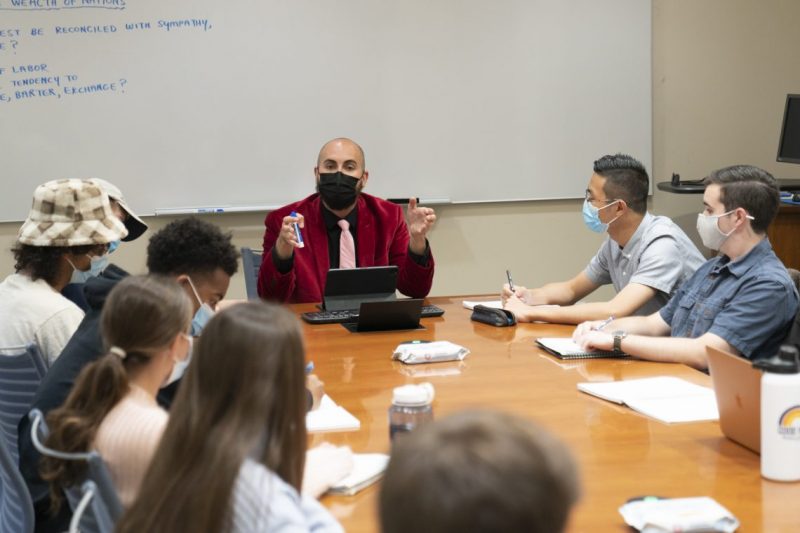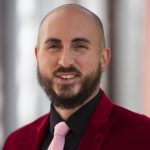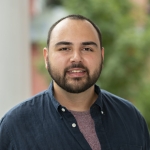DeLaney Fellows Bring Passion, Diversity to W&L Faculty Under the Ted DeLaney Postdoctoral Program, Washington and Lee University is welcoming new faculty each year from underrepresented groups.
Beloved Washington and Lee University history professor Ted DeLaney passed away in December 2020, but his commitment to education and diversity live on through a faculty fellowship program named in his honor.
The Ted DeLaney Postdoctoral Program was established at W&L in 2020 through the university’s membership in the Consortium for Faculty Diversity, an association of 66 liberal arts colleges that are committed to increasing ethnic diversity on their campuses. Since then, W&L has welcomed four highly qualified faculty from underrepresented minority groups to teach courses, conduct research and mentor students.
The Consortium for Faculty Diversity, which is based at Gettysburg College, invites applications for dissertation fellowships and post-doctoral fellowships on behalf of its member institutions. Dissertation fellowship applicants must have completed all requirements for a terminal degree except the dissertation, while post-terminal degree candidates must have fewer than five years of teaching experience. Through the partnership, member colleges increase the diversity of their faculty while fellows gain valuable teaching experience in a liberal arts setting.
“The DeLaney Program is a great opportunity to learn what it’s like to teach at a liberal arts institution, and it offers that opportunity with a reduced teaching load, which allows time to work on research,” said W&L Provost Lena Hill.
Because each school may select a name for its fellowship program, W&L chose to honor DeLaney, who was professor of history emeritus and founder and former chair of the Africana Studies Program.
“Professor DeLaney’s life and work represent the best of the university’s core values; he was a beacon of moral clarity,” President Will Dudley said on the occasion of DeLaney’s passing. “During his career at W&L, Ted worked tirelessly to make the school a more welcoming and inclusive environment. His scholarship provided keen insights into the history of the university and the local community, which illuminated the national conversation around civil rights. He was a mentor to numerous students and faculty, providing them with wise counsel.”
The first DeLaney Fellow was Amanda Rodriguez-Newhall, who arrived in Fall Term 2020 as a postdoctoral fellow in the Department of Cognitive and Behavioral Science and has already moved into the role of visiting assistant professor. Rodriguez-Newhall’s teaching and research focus on the intersections of Latinx identity, social justice education and civic activism. This term she’s teaching Introduction to Social Psychology and Community Psychology.
This academic year, the university welcomed Camilo Alvarez, postdoctoral fellow in economics, and Fernando Zapata, post-doctoral fellow in philosophy. Zapata’s research interests are in the history of philosophy, particularly the American philosophical tradition, social and political philosophy, and ethics. He has taught at Hunter College, and this term, he is teaching a first-year seminar, Free Markets, Private Property and Economic Justice.
Alvarez’s research is centered around international macroeconomic and monetary economics with a specific focus on sovereign debt. His newest project examines how those intersect with political economy factors. Prior to joining W&L, Alvarez worked at the Federal Reserve Bank of Minneapolis and the Minnesota Population Center. This fall, he is teaching Economy of Latin America.
“W&L has such a strong sense of community, from the faculty to the staff to the students, everyone is incredibly friendly and welcoming,” Alvarez said. “The students are bright and engaged, and the faculty was nice and helpful. I felt that it was the perfect place for me to do research while engaging in high-level teaching.”
Although the DeLaney fellowship does not require service, Hill said the fellows are already making an impact at W&L, mentoring students and participating in activities across campus. Hill said that as W&L makes progress on diversity, it’s important for students from underrepresented backgrounds to see faculty like them in the classroom.
Moving forward, the university hopes to have at least two DeLaney fellows in the College and at least one in the Williams School each year. Whether they continue on to tenure-track positions at W&L or join the faculty at other institutions, their time as Delaney fellows will get them ready to thrive.
Hill recalls that when she wrote to DeLaney not long before he passed away to ask permission to name the program after him, he responded right away.
“It was clear to me that it made him proud,” she said. “He really did feel like it was an honor, and that gave us great joy to be able to give that to him.”
If you know any W&L faculty who would be great profile subjects, tell us about them! Nominate them for a web profile.
 Fernando Zapata, DeLaney Postdoctoral Fellow in Philosophy, teaches a first-year seminar,
Fernando Zapata, DeLaney Postdoctoral Fellow in Philosophy, teaches a first-year seminar, Amanda Rodriguez-Newhall
Amanda Rodriguez-Newhall Fernando Zapata
Fernando Zapata Camilo Alvarez, Ted DeLaney Postdoctoral Fellow in Economics
Camilo Alvarez, Ted DeLaney Postdoctoral Fellow in Economics
You must be logged in to post a comment.